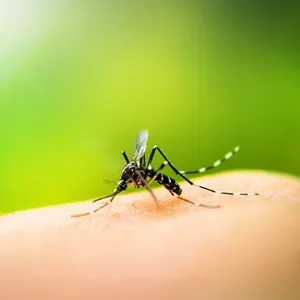Exploration of Parasite Genomes Could Forecast Malaria Drug Resistance

New Delhi, Nov 30 (NationPress) Examining malaria parasite genomes may lead to the development of more effective treatments for the perilous mosquito-transmitted disease and assist in forecasting drug resistance, as per a recent study.
Researchers from the University of California-San Diego conducted an analysis of the genomes from hundreds of malaria parasites. This innovative method allowed them to identify which genetic variants are most likely to provide drug resistance.
Utilizing advanced technologies like machine learning, this research enables scientists to predict antimalarial drug resistance.
Unlike prior studies that could only assess one chemical agent at a time, this new research “forms a roadmap for comprehending antimalarial drug resistance across more than a hundred different compounds,” stated Elizabeth Winzeler, a Professor at UC San Diego.
The findings, published in the journal Science, could also aid in forecasting treatment resistance in various infectious diseases and even cancer.
According to Winzeler, “Many of the resistant genes we studied are conserved across different species.”
Malaria impacts hundreds of millions globally and poses a significant public health threat in numerous tropical and subtropical areas.
Despite considerable advancements in disease control, malaria remains a top cause of morbidity and mortality.
A major contributing factor is the proliferation of drug-resistant strains of Plasmodium falciparum, the malaria-causing parasite, which has consistently made first-line medications ineffective.
For this study, the research team examined the genomes of 724 malaria parasites that evolved in a lab setting to resist one of 118 different antimalarial agents, encompassing both established treatments and new experimental drugs.
The researchers identified patterns in the mutations linked to drug resistance, discovering unique characteristics of these genetic variants, including their specific locations within genes, which could serve to predict which variations are likely to lead to drug resistance.










